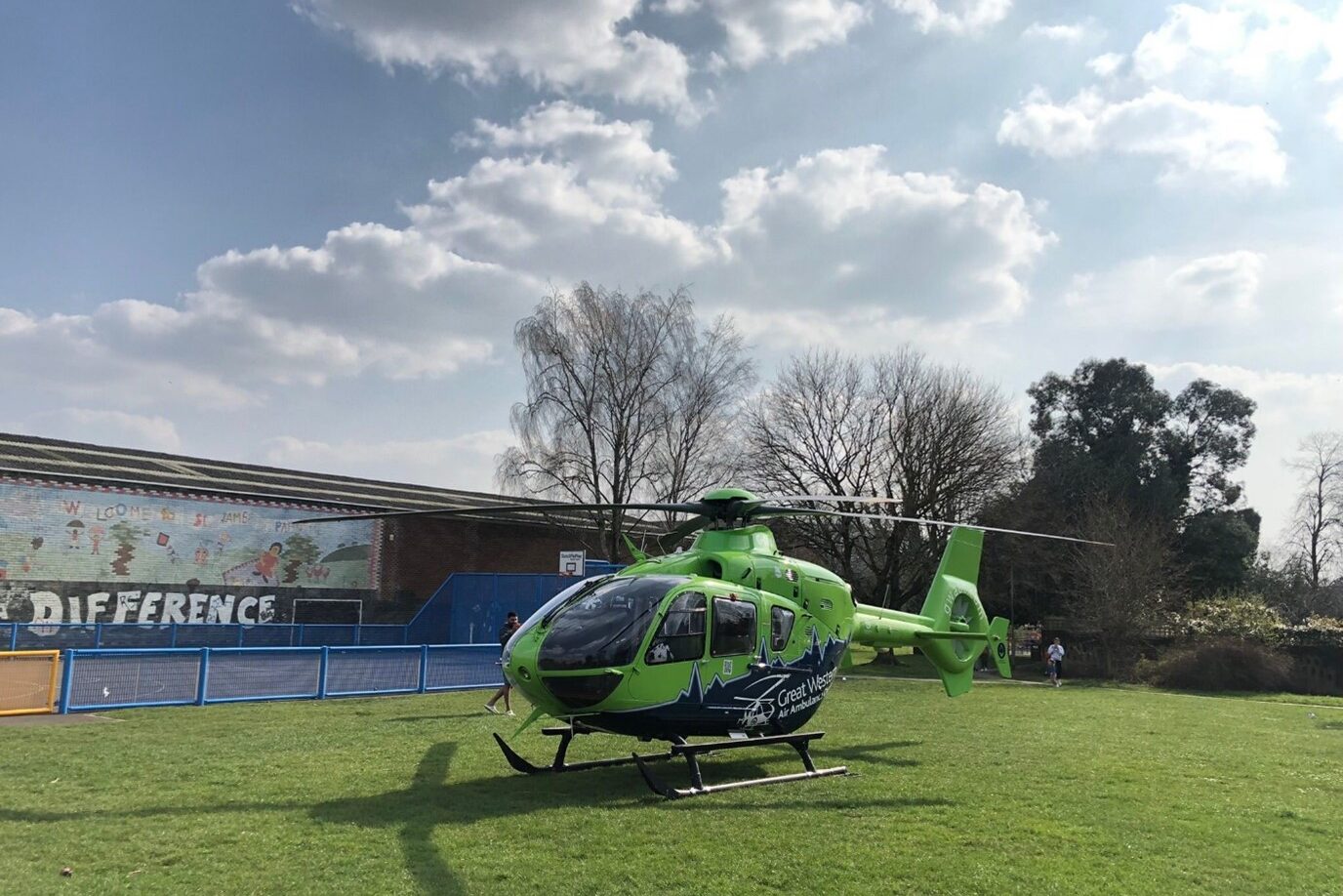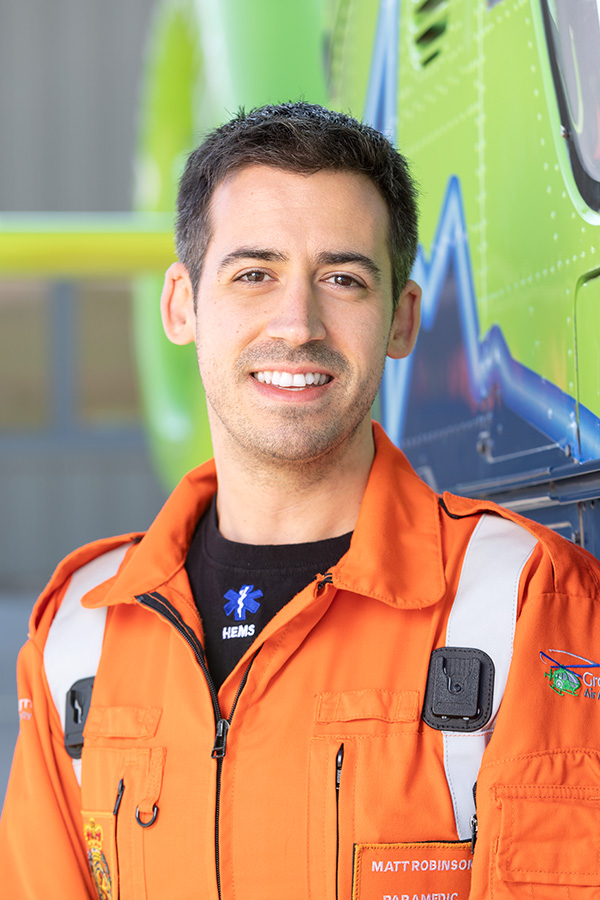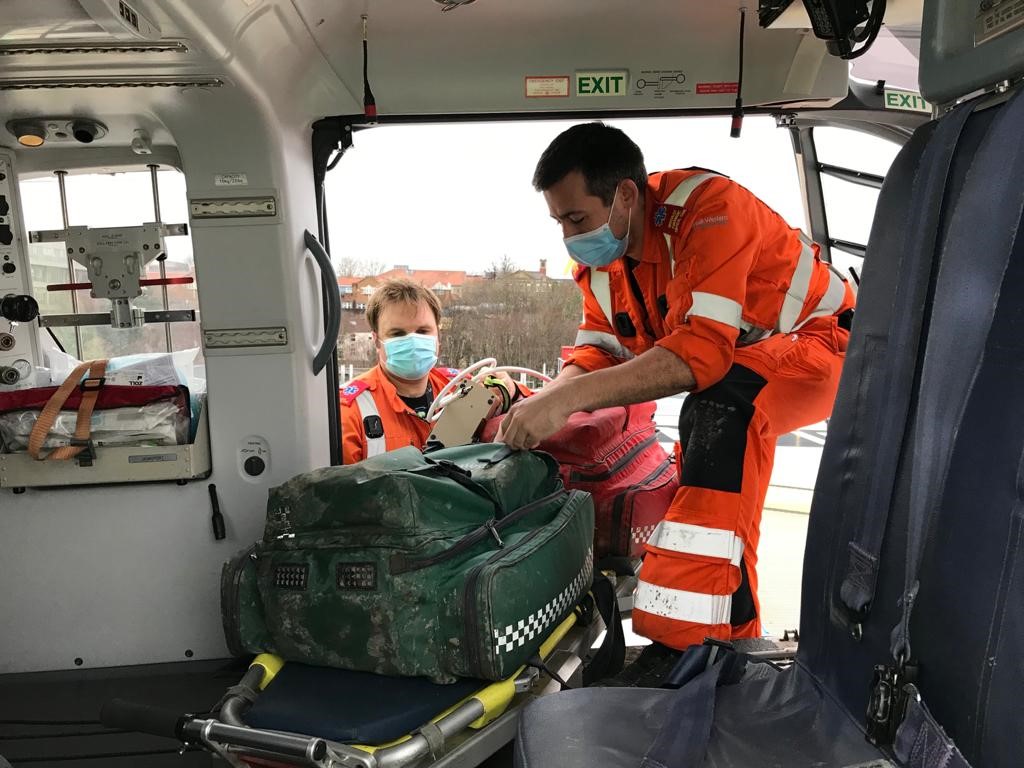
A Valentine’s Day to remember
March 24, 2022
Pilot’s idea takes off
April 5, 2022On Valentine's Day 2019, Robin Jaques had a mountain biking accident in the Forest of Dean. He broke four of his ribs on impact and suffered a punctured lung and a burst femoral artery.
Critical Care Doctor, Tim Godfrey, and Specialist Paramedics in Critical Care (SPCC), Matt Robinson and Pete Sadler, attended Robin and took him to Southmead Hospital.
Below, SPCC Matt Robinson shares his memories of that day. You can also read about Robin’s accident from the perspective of his wife, Sarah, in A Valentine’s Day to remember.
Matt, what do you remember about the day of Robin’s accident?
It was extraordinarily busy; Robin was our fifth tasking of the day. The ambulance crew, who first got to Robin, requested our attendance whilst we were clearing from another incident.
What were your initial thoughts when you got to Robin?
The ambulance crew were rightly concerned that Robin had sustained significant injuries requiring specialist pre-hospital care and conveyance to the regional Major Trauma Centre.
Can you remember what treatment you gave Robin at the scene?
Whilst our pre-hospital interventions were relatively minimal in Robin’s case, we were able to provide strong pain killers to make him comfortable before rapidly conveying him by air to Bristol.
There is always a balance with how much we intervene in the pre-hospital environment. Many of the interventions we perform are not without risk, so if we detect certain injuries we have to gauge whether it is immediately life-threatening or better managed in hospital.
We had a strong clinical suspicion of Robin’s injuries. Had he deteriorated further, we had the equipment and expertise to provide immediate care.
Can you recall the sequence of events?
The 999 call was made at 11:04 with the first crew arriving at the bike centre by 11:20. The trails weave through dense forest areas, making it really challenging and time-consuming to locate patients. They often have to be found on foot!
The ambulance crew began treating Robin and requested our attendance. They transported him to a nearby landing site to meet us.
We lifted from scene at 13:51, having spoken to his wife shortly beforehand. The flight to Southmead took 12 minutes.
Robin has lived to tell the tale. And the fact he is now a trustee of Great Western Air Ambulance Charity shows his feeling and commitment to the charity. How does helping patients like Robin make you feel?
Personally, it is a great pleasure when patients and their families return to meet the crew. It can be a great opportunity for us to give a bit more detail about the interventions we provided, helping to provide some reassurance or closure for them in their recovery.
The fact that Robin has committed so strongly to the charity makes all of us involved in his care really proud.
Robin’s wife Sarah praises the calming voice of SPCC Pete Sadler, who talked her through what was happening. In fact, he was so calming, she felt comfortable that everything was being done that could be done, and so went shopping before travelling to the hospital.
Former patients often say that members of the crew have a special quality - that of being super professional and highly skilled with exceptional communication skills. Does part of your training include communication skills? Or do you learn them on the job? Or do you think they are innate in all good medics?
We are all experienced clinicians, with a lot of experience in communicating with patients and relatives. We continue to learn from each other, but not many of us will have had formal training!
The power of sharing stories
Here at GWAAC, we do all we can to support patients and their families. This extends far beyond the critical care they received at the scene. We can provide opportunities for former patients to visit the base, meet the crew, and even share their stories. Our door is always open to helping former patients understand, and come to terms with, what happened that day.
If you’re a former patient, sharing your story is a way to help others understand they’re not alone and that a lasting impact is common and normal. If you would like to share your story, please do get in touch.
There is always a balance with how much we intervene in the pre-hospital environment. Many of the interventions we perform are not without risk and so if we detect certain injuries we have to gauge whether it is immediately life-threatening or better managed in-hospital.


Leave a Legacy




